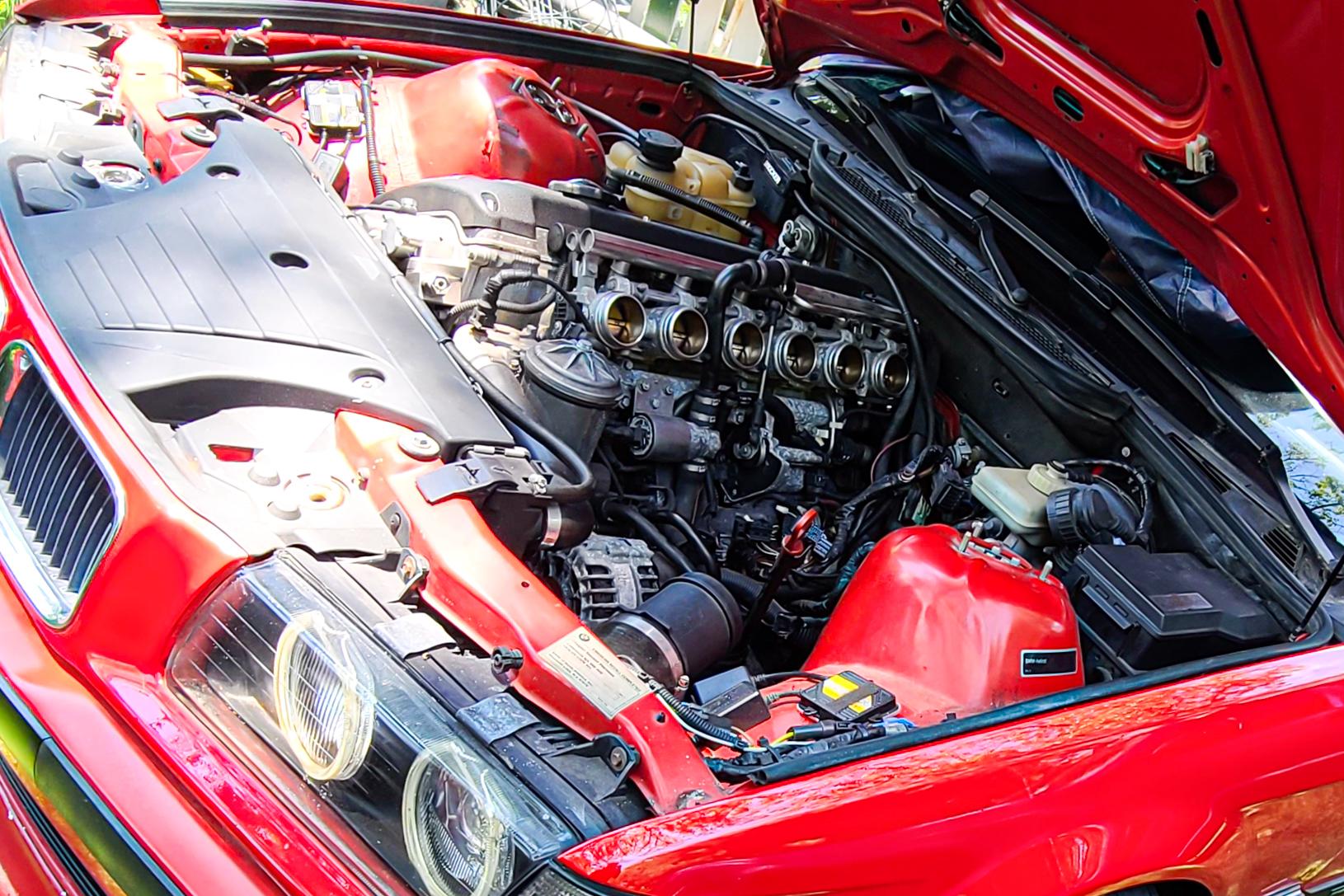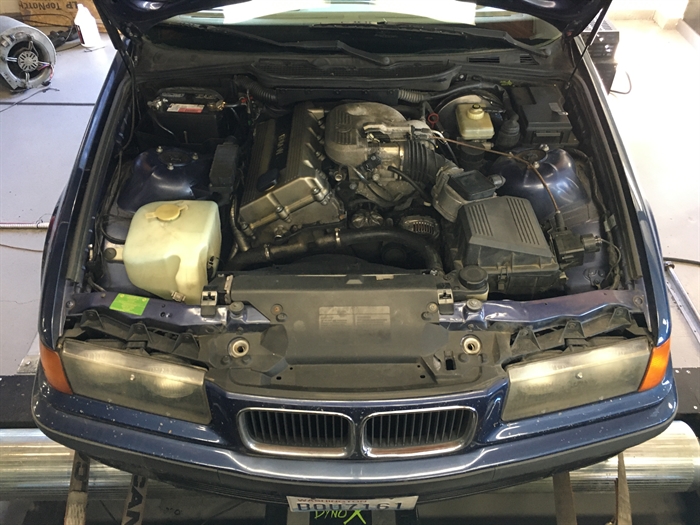BMW 318ti: A Classic Compact with Ageless Allure
BMW 318ti: A Classic Compact with Ageless Allure
Blog Article
Secret Attributes to Try To Find When Purchasing an Engine for Automotive Applications
When taking into consideration the acquisition of an engine for vehicle applications, a number of vital features call for cautious examination to make certain optimal performance and functionality. From power and performance abilities to fuel adherence, resilience, and performance to emissions requirements, each facet plays a vital duty in identifying the engine's suitability for particular automobile demands.
Power and Performance
When selecting an automobile engine, buyers prioritize power and efficiency to guarantee optimum driving experience and performance. The power outcome of an engine, frequently gauged in horsepower (HP) or kilowatts (kW), dictates the velocity, top rate, and general abilities of a car. Higher power rankings typically cause quicker acceleration and much better performance, especially during overtaking or bring heavy lots. Efficiency, on the various other hand, encompasses a more comprehensive range of characteristics, including gas performance, emissions, integrity, and total driving characteristics. A well-performing engine not just delivers power effectively but likewise operates efficiently across various speed varieties and driving problems.
In addition, factors such as engine turbocharging, variation, and crossbreed innovations play substantial roles in enhancing both power and performance levels. Inevitably, picking an engine that provides a potent mix of power and efficiency makes certain a gratifying and efficient driving experience.
Gas Effectiveness
Optimizing gas performance is a vital consideration for consumers when assessing auto engine choices. Modern engines with attributes like straight fuel shot, turbocharging, and variable shutoff timing can considerably improve fuel effectiveness by boosting combustion procedures and reducing power loss.

Resilience and Dependability
Attaining resilient performance and dependable operation is crucial for customers reviewing the durability and dependability of auto engines. When thinking about an engine for automobile applications, longevity refers to the engine's capacity to hold up against wear, stress and anxiety, and extreme operating conditions over an extended period. Dependability, on the various other hand, indicates that the engine can regularly do its intended function without unexpected malfunctions or failings.
Consumers should seek engines built with premium products and exact design to ensure durability. Elements such as pistons, bearings, and crankshafts should be resilient to manage the engine's power result without early wear. In addition, engines outfitted with sophisticated air conditioning systems, effective lubrication, and durable filtering mechanisms often tend to exhibit greater levels of integrity.
Regular maintenance and adherence to manufacturer referrals are likewise important consider maintaining an engine's sturdiness and reliability. By adhering to upkeep routines, using recommended liquids, and attending to any issues immediately, consumers can optimize the lifespan and efficiency of their vehicle engines. Inevitably, prioritizing toughness and reliability in engine selection can lead to a more satisfying ownership experience with fewer unforeseen disturbances.
Emissions Compliance
Making sure conformity with exhausts policies is an important facet of assessing vehicle engines for ecologically mindful consumers. With boosting problems regarding air high quality and environmental effect, strict discharges requirements have actually been placed in location globally to lower unsafe pollutants launched right into the atmosphere. When acquiring an engine for automobile applications, it is important to consider its emissions compliance to lessen the carbon footprint and stick to legal demands.
Modern engines are outfitted with innovative emission control innovations such as catalytic converters, exhaust gas recirculation (EGR) systems, and selective catalytic reduction (SCR) to lower hazardous exhaust gases like nitrogen oxides (NOx), carbon monoxide (CARBON MONOXIDE), and hydrocarbons (HC) These systems play a critical role in making sure that the engine satisfies the specified emissions requirements and runs within permissible limits.

Cost-effectiveness
When considering vehicle engine acquisitions, examining cost-effectiveness is vital for consumers seeking both efficiency and worth. Cost-effectiveness in engine acquisition involves greater than simply the preliminary purchase cost. It encompasses the general expenses associated with maintenance, gas usage, and prospective repair work over the engine's life-span. Opting for an engine that provides a balance in between long-term savings and ahead of time expenses can lead to significant benefits for the consumer.
One key aspect of cost-effectiveness is fuel Go Here performance. Engines that are developed to make best use of gas economic situation can cause significant financial savings over time, particularly for people that drive often or over cross countries. Additionally, considering the availability and affordability of extra parts and maintenance can add to the general cost-effectiveness of an engine. Making certain that maintenance and repairs are reasonable and obtainable can protect against unforeseen economic concerns down the line.

Conclusion
To conclude, when acquiring an engine for auto applications, it is critical to consider key attributes such as power and performance, fuel performance, durability and integrity, exhausts conformity, and cost-effectiveness. These aspects are necessary in making sure that the engine meets the demands of the vehicle and operates effectively in different driving problems - bmw 318ti. Making an informed decision based upon these criteria will ultimately lead to a reliable and effective auto engine acquisition
From power and performance capacities to sustain sturdiness, performance, and adherence to exhausts criteria, each element plays a crucial duty in establishing the engine's viability for particular automobile needs. Engines designed to run on alternative gas such as electric power, crossbreed systems, or biofuels can use enhanced fuel economy and lower exhausts contrasted to try this site traditional gas or diesel engines. Consumers ought to thoroughly consider the gas performance scores and technologies integrated into vehicle engines to make informed buying choices that align with their concerns for cost savings and sustainability.
When considering an engine for automotive applications, longevity refers to the engine's capability to endure wear, stress and anxiety, and rough operating conditions over an extensive duration.In conclusion, when purchasing an engine for automotive applications, it is essential to think about key attributes such as power additional reading and performance, gas dependability, resilience and effectiveness, discharges compliance, and cost-effectiveness.
Report this page